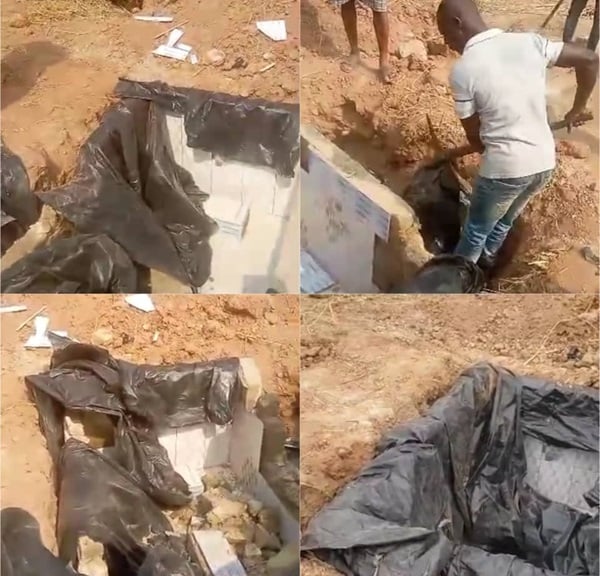The serene community of Santasi Apire, nestled within the bustling Kumasi Metropolis of Ghana’s Ashanti Region, witnessed a clash between tradition and civic responsibility on Saturday, September 6, 2025. A family, grieving the loss of their seven-year-old son, attempted to bury the child near a local river, a decision that sparked immediate protest from residents who viewed the action as a violation of community regulations and a threat to their vital water source. This incident underscores the delicate balance between personal grief, established customs, and the collective responsibility to safeguard shared resources.
The family’s chosen burial site, located in close proximity to the river, raised immediate concerns among the residents of Santasi Apire. Mr. Bernard, a community member who spearheaded the intervention, explained that the family had not sought or received the necessary approvals from local authorities. Such approvals, he emphasized, are crucial to ensure burials are conducted in designated areas, respecting both community norms and environmental considerations. The unauthorized nature of the attempted burial, in residents’ eyes, transformed a private act of mourning into a potential public health and environmental hazard.
Beyond the absence of official sanction, the residents’ primary concern stemmed from the potential contamination of their river, a critical source of water for the community. Burying a body near the riverbank, they argued, risked introducing harmful pathogens and pollutants into the water supply, jeopardizing the health and well-being of the entire community. This concern highlights the profound importance of clean water sources in Santasi Apire and the community’s commitment to protecting this vital resource. The residents’ actions, therefore, were motivated not by a lack of empathy for the grieving family but by a deep-seated responsibility to safeguard the collective good.
The residents, led by Mr. Bernard, took decisive action to prevent the burial. They destroyed the hastily dug grave and filled the hole, effectively nullifying the family’s attempt to bury their child at the chosen site. This direct intervention, while seemingly harsh in the face of a family’s grief, demonstrates the community’s resolve to uphold its regulations and protect its shared environment. Their actions send a clear message: adherence to established protocols is paramount, especially when it concerns the well-being of the entire community.
Following the residents’ intervention, the family initiated discussions with community leaders and authorities to secure a suitable burial location that adheres to established regulations. This dialogue, though born out of conflict, represents a crucial step towards reconciliation and understanding. It allows the grieving family to fulfill their burial rites while respecting the community’s concerns and environmental safeguards. The incident ultimately serves as a catalyst for open communication and reinforces the importance of community engagement in matters of public health and environmental protection.
The events in Santasi Apire offer a valuable lesson in balancing personal needs with community well-being. The incident highlights the importance of respecting established regulations, particularly those designed to protect shared environmental resources. While the family’s grief is undeniable, the community’s response underscores the critical role of collective responsibility in safeguarding public health and preserving the environment for future generations. The subsequent dialogue between the family and the community demonstrates the possibility of finding common ground, even in the midst of difficult circumstances, and reinforces the importance of open communication in resolving community disputes. This incident, though emotionally charged, ultimately served as a reminder of the interconnectedness of individual actions and their impact on the collective good within the Santasi Apire community.














